BY DEFENCE JOURNALIST SAHIL | T.I.N. NETWORK
Sapta Shakti Command Hosts Strategic Seminar on “The China Challenge” — Exploring India’s Response to Beijing’s Expanding Influence
Jaipur, Friday, 31 October 2025
In a defining initiative reflecting India’s intellectual and strategic preparedness, the Sapta Shakti Command of the Indian Army organised a high-level seminar on “The China Challenge” at Jaipur Military Station under the aegis of its in-house think tank, the Gyan Shakti Think Tank (GSTT). The event brought together some of the nation’s finest minds in diplomacy, defence, and strategic studies to examine the complex layers of India’s evolving relationship with China — a nation whose economic, military, and technological trajectory continues to reshape the global order.
The seminar was graced by Lieutenant General Manjinder Singh, Army Commander, Sapta Shakti Command, whose leadership has been instrumental in transforming the western command’s intellectual and technological ecosystem through initiatives like GSTT. The panel of distinguished speakers included Lieutenant General S. L. Narasimhan (Retd), former Defence Attaché to China and Member of the National Security Advisory Board; Ambassador Gautam Bambawale, former Indian Ambassador to China, Pakistan, and Bhutan; Ambassador Satish Mehta, former Indian envoy to Kuwait, Bhutan, and Nepal; and Ms Elizabeth Roche, Professor of International Relations at Jindal University and a noted scholar of Asian geopolitics.
Delving into the China Question: The Strategic and Economic Landscape
The seminar began with an incisive overview of China’s transformative rise over the past three decades. Speakers noted that the People’s Republic of China, once a continental power focused inwardly on industrial growth, has evolved into a formidable maritime and technological power whose economic and military expansion is fundamentally altering Asia’s balance of power.
Lieutenant General Narasimhan emphasised that China’s rapid strides in artificial intelligence, advanced manufacturing, and defence modernization are part of a long-term civil-military fusion strategy designed to make it self-sufficient and dominant across multiple strategic domains. He observed that Beijing’s push for technological superiority — from 5G networks to quantum computing and hypersonic weaponry — poses a multidimensional challenge not only to India but to global stability.
Ambassador Bambawale drew upon his tenure in Beijing to illustrate how China’s foreign policy is deeply intertwined with its domestic goals of maintaining political stability and sustaining economic momentum. He explained that the Belt and Road Initiative (BRI), the China-Pakistan Economic Corridor (CPEC), and its growing maritime presence in the Indian Ocean Region (IOR) are components of a larger framework aimed at consolidating China’s influence in South Asia and beyond.
Ambassador Mehta expanded on how China’s strategic investments in India’s neighbourhood — from Nepal and Sri Lanka to the Maldives and Myanmar — have created both opportunities and vulnerabilities for India. He cautioned that New Delhi’s strategic response must be multifaceted, balancing hard power with diplomatic agility, economic resilience, and regional partnerships.
Professor Elizabeth Roche provided an academic perspective, highlighting how China’s technological innovation and centralised policy implementation have outpaced most nations, including the United States in certain sectors. She stressed that India must focus on critical mineral independence, semiconductor research, defence manufacturing, and collaborative innovation to offset Beijing’s technological edge.
Understanding the Power Shift and India’s Strategic Imperatives
The discussions delved deep into the global implications of China’s rise. The panel concurred that Beijing’s attempts to shape regional institutions, redefine global trade architecture, and establish technological monopolies are indicators of an assertive power seeking to replace the existing order with a Sino-centric model.
Participants noted that India’s dependency on China for critical raw materials, especially rare earth elements and essential electronics components, creates strategic vulnerabilities that need to be urgently addressed through Atmanirbharta (self-reliance). At the same time, India’s defence-industrial base, supported by indigenous R&D, must evolve rapidly to ensure technological parity in emerging warfare domains such as space, cyber, and unmanned systems.
The speakers also underscored the need for a calibrated yet firm approach along the Line of Actual Control (LAC), advocating for a sustained military posture supported by intelligence fusion, advanced surveillance, and strategic infrastructure in border areas.
The Vision Behind Gyan Shakti Think Tank
The Gyan Shakti Think Tank (GSTT), established by Sapta Shakti Command in November 2024, has emerged as a pioneering platform for military-civilian intellectual synergy. Conceived as an indigenous defence knowledge ecosystem, GSTT aims to integrate military experience, academic insight, and industry innovation into a single framework for strategic foresight.
Since its inception, GSTT has hosted several landmark events such as “Atmanirbharta in Defence Manufacturing: Opportunities in Rajasthan”, “India’s Journey: Charting the Path to Viksit Bharat”, and “Contribution of Veterans in Nation Building”. Its sessions on geostrategic developments in India’s neighbourhood and emerging industrial trends have been instrumental in aligning regional academic institutions, defence startups, and research organisations with national security goals.
By fostering a collaborative environment between veterans, technologists, scholars, and policymakers, GSTT represents the Army’s evolving vision of warfare — one that values knowledge, innovation, and intellectual preparedness as much as tactical strength.
The Army Commander’s Address: Knowledge as the Core of National Power
In his concluding remarks, Lieutenant General Manjinder Singh lauded the Think Tank’s efforts in promoting intellectual discourse within the armed forces and beyond. He emphasised that modern warfare is no longer confined to battlefields but extends across economic, technological, and psychological domains — areas where awareness and adaptability define strategic success.
The Army Commander called upon officers and scholars alike to stay constantly informed about geopolitical and economic shifts, particularly in relation to China’s dynamic behaviour in Asia. He expressed confidence that such dialogues — bringing together diplomats, strategists, and academicians — would enrich the strategic understanding of young officers under the Sapta Shakti Command, enabling them to make informed decisions in a rapidly evolving global landscape.
Lieutenant General Singh also acknowledged the distinguished panellists for sharing their insights drawn from decades of diplomatic and defence experience, describing their perspectives as invaluable in shaping a nuanced understanding of the “China Challenge.”
The Broader Significance: Strengthening India’s Intellectual Frontline
The “China Challenge” seminar stands as a testimony to the Indian Army’s vision of combining intellectual strength with operational excellence. It underscores how India’s security establishment is not merely responding to external threats but is also investing in strategic knowledge creation — a critical pillar of nation-building.
Through GSTT, Sapta Shakti Command has effectively bridged the gap between military institutions and civil society, reinforcing the whole-of-nation approach to achieving Viksit Bharat. It embodies the belief that strategic awareness, research, and innovation are as crucial as military might in securing India’s rightful place on the global stage.
As India continues to navigate a turbulent international environment marked by shifting alliances, technological disruption, and assertive adversaries, initiatives like this seminar reaffirm the Indian Army’s commitment to national security — rooted in knowledge, foresight, and an unflinching sense of purpose.
“The China Challenge” seminar was not merely an event — it was a reflection of India’s strategic maturity, intellectual confidence, and resolve to face emerging global realities with clarity and conviction.
BY DEFENCE JOURNALIST SAHIL | T.I.N. NETWORK
सप्त शक्ति कमान ने “द चाइना चैलेंज” पर किया रणनीतिक सेमिनार का आयोजन — भारत की प्रतिक्रिया और वैश्विक परिप्रेक्ष्य पर हुआ गहन मंथन
जयपुर, शुक्रवार, 31 अक्टूबर 2025
भारत की सामरिक सोच, रणनीतिक तैयारी और बौद्धिक क्षमता को नए आयाम देने वाली एक ऐतिहासिक पहल के तहत भारतीय सेना की सप्त शक्ति कमान ने जयपुर मिलिट्री स्टेशन में “द चाइना चैलेंज” विषय पर एक उच्चस्तरीय सेमिनार का आयोजन किया। यह सेमिनार ज्ञान शक्ति थिंक टैंक (Gyan Shakti Think Tank – GSTT) के तत्वावधान में आयोजित हुआ — जो सेना और नागरिक क्षेत्र के बीच ज्ञान, प्रौद्योगिकी और रणनीतिक विचारों के समन्वय का एक सशक्त मंच बन चुका है।
इस आयोजन में देश के शीर्ष कूटनीतिक, रक्षा और रणनीतिक विशेषज्ञों ने भाग लिया और भारत-चीन संबंधों के बहुआयामी पहलुओं पर विस्तृत विमर्श किया। चीन की आर्थिक, तकनीकी और सैन्य उन्नति के बीच भारत के लिए उत्पन्न हो रही चुनौतियों तथा अवसरों पर गहन विश्लेषण प्रस्तुत किया गया।
इस अवसर पर सप्त शक्ति कमान के आर्मी कमांडर लेफ्टिनेंट जनरल मनजिंदर सिंह मुख्य अतिथि के रूप में उपस्थित रहे। उनके नेतृत्व में सप्त शक्ति कमान ने पश्चिमी मोर्चे पर न केवल सैन्य शक्ति बल्कि बौद्धिक एवं तकनीकी सक्षमता को भी सशक्त बनाने के अनेक प्रयास किए हैं। सेमिनार में शामिल विशिष्ट वक्ताओं में लेफ्टिनेंट जनरल एस.एल. नारसिम्हन (सेवानिवृत्त) – भारत के पूर्व डिफेंस अटैचे टू चाइना एवं राष्ट्रीय सुरक्षा सलाहकार बोर्ड के सदस्य; राजदूत गौतम बंबावाले, भारत के पूर्व राजदूत (चीन, पाकिस्तान, भूटान); राजदूत सतीश मेहता, पूर्व भारतीय राजदूत (कुवैत, नेपाल, भूटान) तथा सुश्री एलिज़ाबेथ रोच, जिंदल यूनिवर्सिटी की प्रोफेसर एवं एशियाई भू-राजनीति विशेषज्ञ शामिल रहीं।
चीन की चुनौती: आर्थिक व सामरिक शक्ति संतुलन की नई परिभाषा
सेमिनार की शुरुआत चीन के पिछले तीन दशकों के व्यापक परिवर्तन पर गहन चर्चा से हुई। वक्ताओं ने बताया कि पीपुल्स रिपब्लिक ऑफ चाइना ने एक सीमित भू-आधारित शक्ति से एक विशाल समुद्री, तकनीकी और आर्थिक शक्ति के रूप में रूपांतरण कर लिया है, जिसने एशिया की शक्ति-संतुलन रेखा को गहराई से प्रभावित किया है।
लेफ्टिनेंट जनरल नारसिम्हन ने बताया कि चीन की सिविल-मिलिट्री फ्यूजन स्ट्रैटेजी का उद्देश्य दीर्घकालिक आत्मनिर्भरता और बहु-क्षेत्रीय प्रभुत्व हासिल करना है। उन्होंने कहा कि चीन की कृत्रिम बुद्धिमत्ता (AI), क्वांटम तकनीक, 5G नेटवर्क, हाइपरसोनिक हथियारों और एडवांस्ड मैन्युफैक्चरिंग में तीव्र प्रगति केवल रक्षा क्षेत्र तक सीमित नहीं है, बल्कि यह एक समग्र राष्ट्रीय शक्ति निर्माण का हिस्सा है।
राजदूत गौतम बंबावाले ने अपने चीन कार्यकाल के अनुभव साझा करते हुए बताया कि बीजिंग की विदेश नीति उसके घरेलू राजनीतिक और आर्थिक उद्देश्यों से गहराई से जुड़ी है। उन्होंने बेल्ट एंड रोड इनिशिएटिव (BRI), चीन-पाकिस्तान आर्थिक गलियारा (CPEC) और हिंद महासागर क्षेत्र (IOR) में चीन की बढ़ती उपस्थिति को दक्षिण एशिया में उसके प्रभाव विस्तार की दीर्घकालिक रणनीति का हिस्सा बताया।
राजदूत सतीश मेहता ने नेपाल, श्रीलंका, मालदीव और म्यांमार में चीन की निवेश-आधारित कूटनीति पर प्रकाश डाला और कहा कि भारत को अब बहुस्तरीय रणनीतिक प्रतिक्रिया देनी होगी जिसमें कठोर शक्ति (Hard Power), आर्थिक आत्मनिर्भरता और राजनयिक संतुलन तीनों का समुचित तालमेल जरूरी है।
प्रोफेसर एलिज़ाबेथ रोच ने शैक्षणिक दृष्टिकोण से बताया कि चीन ने जिस तेज़ी से तकनीकी नवाचार और नीतिगत केंद्रीकरण को जोड़ा है, वह उसे कई क्षेत्रों में अमेरिका से भी आगे ले जा रहा है। उन्होंने सुझाव दिया कि भारत को सेमीकंडक्टर शोध, रक्षा विनिर्माण, खनिज आत्मनिर्भरता और टेक्नोलॉजी को-इनोवेशन पर ध्यान केंद्रित करना चाहिए ताकि चीन की तकनीकी बढ़त को संतुलित किया जा सके।
बदलता शक्ति संतुलन और भारत की रणनीतिक प्राथमिकताएँ
सेमिनार में वक्ताओं ने यह निष्कर्ष निकाला कि चीन अब केवल एशिया का खिलाड़ी नहीं बल्कि वैश्विक आर्थिक व सैन्य संरचना को पुनर्परिभाषित करने वाला तत्व बन गया है। वह क्षेत्रीय संस्थाओं, व्यापार आर्किटेक्चर और तकनीकी आपूर्ति श्रृंखलाओं पर नियंत्रण स्थापित कर एक Sino-centric order (चीन-केंद्रित व्यवस्था) बनाने की दिशा में आगे बढ़ रहा है।
भारत के संदर्भ में चर्चा हुई कि चीन पर निर्भरता — विशेषकर रेयर अर्थ मिनरल्स और इलेक्ट्रॉनिक कंपोनेंट्स के क्षेत्र में — भारत की रणनीतिक कमजोरी है। इसे आत्मनिर्भरता (Atmanirbharta) की दिशा में सुधारना समय की आवश्यकता है।
वक्ताओं ने यह भी कहा कि भारत को एलएसी (Line of Actual Control) पर संवेदनशील परंतु दृढ़ सैन्य दृष्टिकोण बनाए रखना चाहिए — जिसमें इंटेलिजेंस फ्यूजन, एडवांस सर्विलांस सिस्टम, और सीमा क्षेत्रों में रणनीतिक इंफ्रास्ट्रक्चर विकास प्रमुख भूमिका निभाएँगे।
ज्ञान शक्ति थिंक टैंक: सेना का नया वैचारिक अभियान
सप्त शक्ति कमान द्वारा नवंबर 2024 में स्थापित ज्ञान शक्ति थिंक टैंक (GSTT) एक अद्वितीय पहल है जो सैन्य–नागरिक बौद्धिक समन्वय का केंद्र बन चुका है। यह एक ऐसा मंच है जहां सेना के अनुभव, शिक्षाविदों की अंतर्दृष्टि और उद्योग जगत की तकनीकी विशेषज्ञता का संगम होता है।
GSTT अब तक कई उल्लेखनीय कार्यक्रम आयोजित कर चुका है, जैसे — “आत्मनिर्भरता इन डिफेंस मैन्युफैक्चरिंग: राजस्थान में अवसर”, “इंडिया’ज़ जर्नी: चार्टिंग द पाथ टू विकसित भारत”, तथा “राष्ट्र निर्माण में वेटरन्स का योगदान”। इसके अलावा, भारत के पड़ोसी देशों में भू-राजनीतिक परिवर्तनों और औद्योगिक विकास पर आधारित संगोष्ठियाँ भी आयोजित की गई हैं।
यह थिंक टैंक रक्षा क्षेत्र में नवाचार, तकनीकी आत्मसात और उद्योग–अकादमिक सहभागिता को सशक्त कर रहा है। यह सेना की उस नई दृष्टि का प्रतीक है, जिसमें ज्ञान, नवाचार और वैचारिक तैयारी को पारंपरिक सैन्य शक्ति के समान महत्व दिया जा रहा है।
आर्मी कमांडर का संदेश: ज्ञान ही राष्ट्रशक्ति की नींव
अपने समापन संबोधन में लेफ्टिनेंट जनरल मनजिंदर सिंह ने कहा कि आधुनिक युद्ध केवल सीमाओं पर नहीं लड़ा जाता, बल्कि यह आर्थिक, तकनीकी और मनोवैज्ञानिक मोर्चों पर भी लड़ा जाता है। इसलिए आज के सैन्य नेतृत्व को इन परिवर्तनों से निरंतर अवगत रहना चाहिए।
उन्होंने कहा कि इस प्रकार के सेमिनार युवा अधिकारियों के लिए अत्यंत उपयोगी हैं क्योंकि यह उन्हें कूटनीतिक दृष्टिकोण, वैश्विक अर्थशास्त्र और क्षेत्रीय भू-राजनीति की गहरी समझ प्रदान करते हैं। उन्होंने सभी विशिष्ट वक्ताओं को उनके समय और मूल्यवान विचारों के लिए आभार व्यक्त करते हुए कहा कि ऐसे संवाद सेना को रणनीतिक रूप से और अधिक सशक्त बनाते हैं।
राष्ट्रीय शक्ति की बौद्धिक रीढ़: सेमिनार का व्यापक महत्व
“द चाइना चैलेंज” सेमिनार इस बात का प्रतीक है कि भारतीय सेना केवल रक्षा शक्ति नहीं बल्कि राष्ट्रीय बौद्धिक शक्ति को भी नई दिशा दे रही है। यह इस विचार को पुष्ट करता है कि भारत की सुरक्षा रणनीति केवल हथियारों से नहीं, बल्कि विचारों, अनुसंधान और ज्ञान के संयोजन से मजबूत होगी।
GSTT जैसे प्लेटफॉर्म्स सेना और समाज के बीच एक नई बौद्धिक साझेदारी को जन्म दे रहे हैं, जिससे “विक्सित भारत” की दिशा में Whole-of-Nation Approach को सशक्त बनाया जा रहा है।
भारत जब एक बदलते वैश्विक परिदृश्य — उभरते गठबंधन, तकनीकी युद्ध और आक्रामक विरोधियों — के बीच आगे बढ़ रहा है, तब इस तरह के सेमिनार राष्ट्र की सामरिक चेतना को मजबूती देने वाले स्तंभ बनते जा रहे हैं।
“द चाइना चैलेंज” केवल एक सेमिनार नहीं, बल्कि यह भारत की रणनीतिक परिपक्वता, बौद्धिक आत्मविश्वास और वैश्विक परिवर्तनों के प्रति सजगता का प्रतीक है।


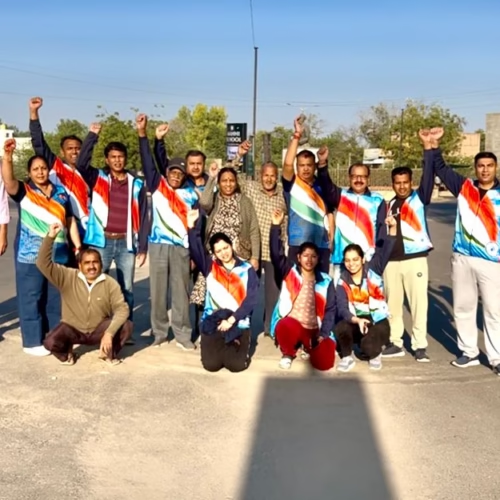

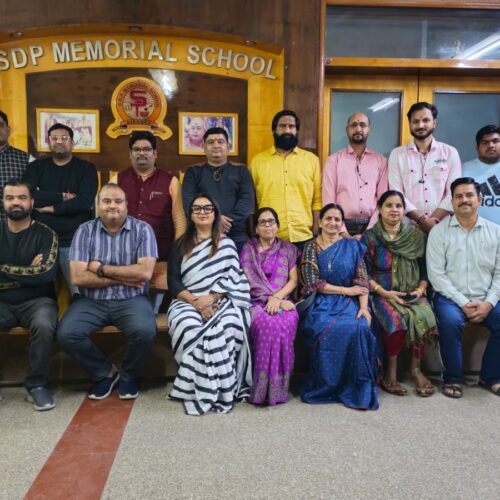

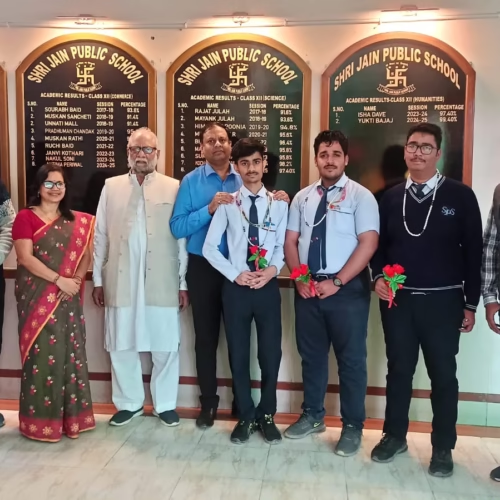
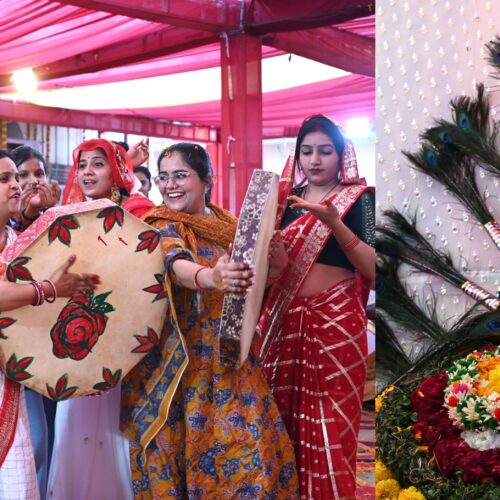
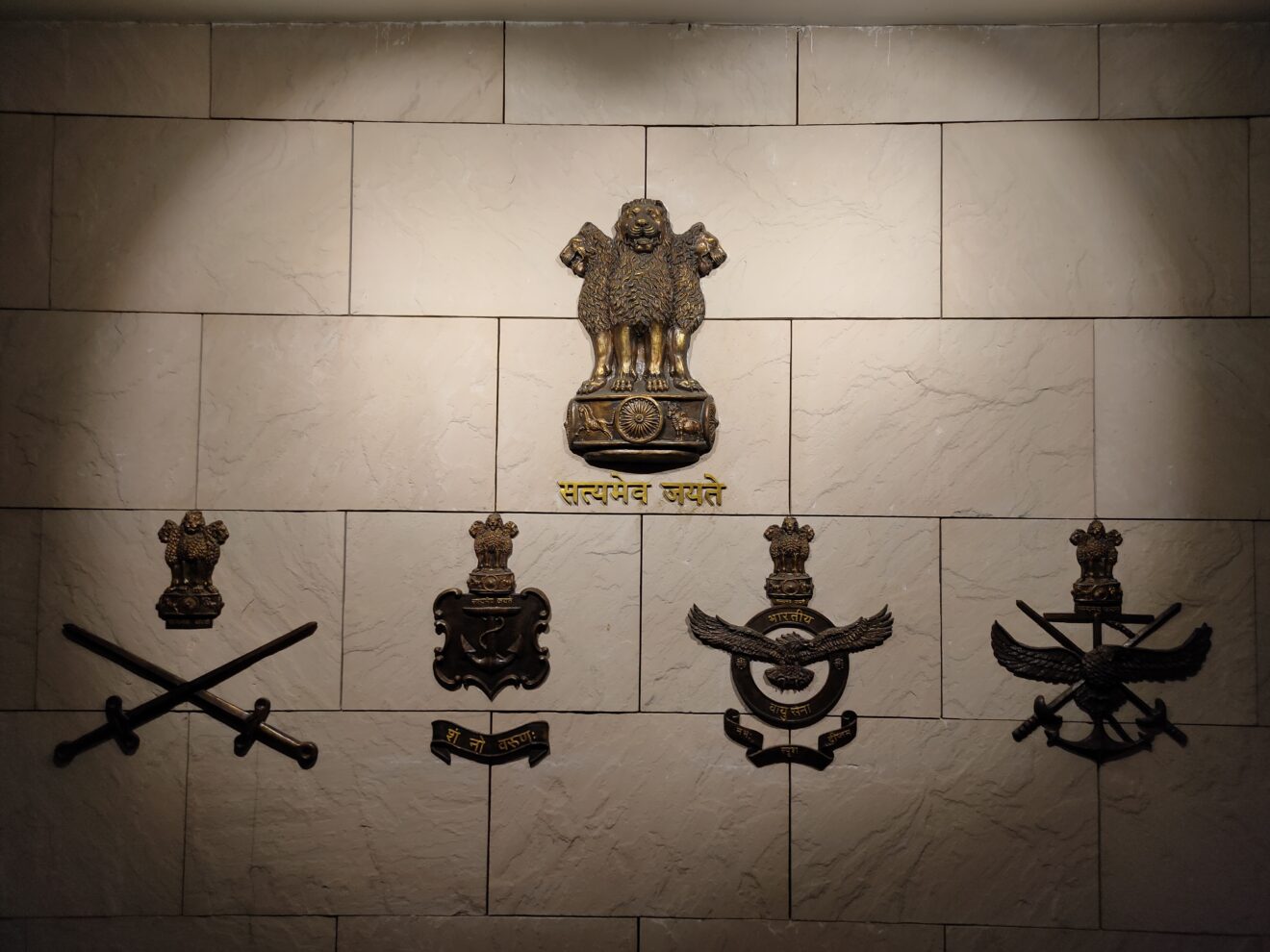



Add Comment